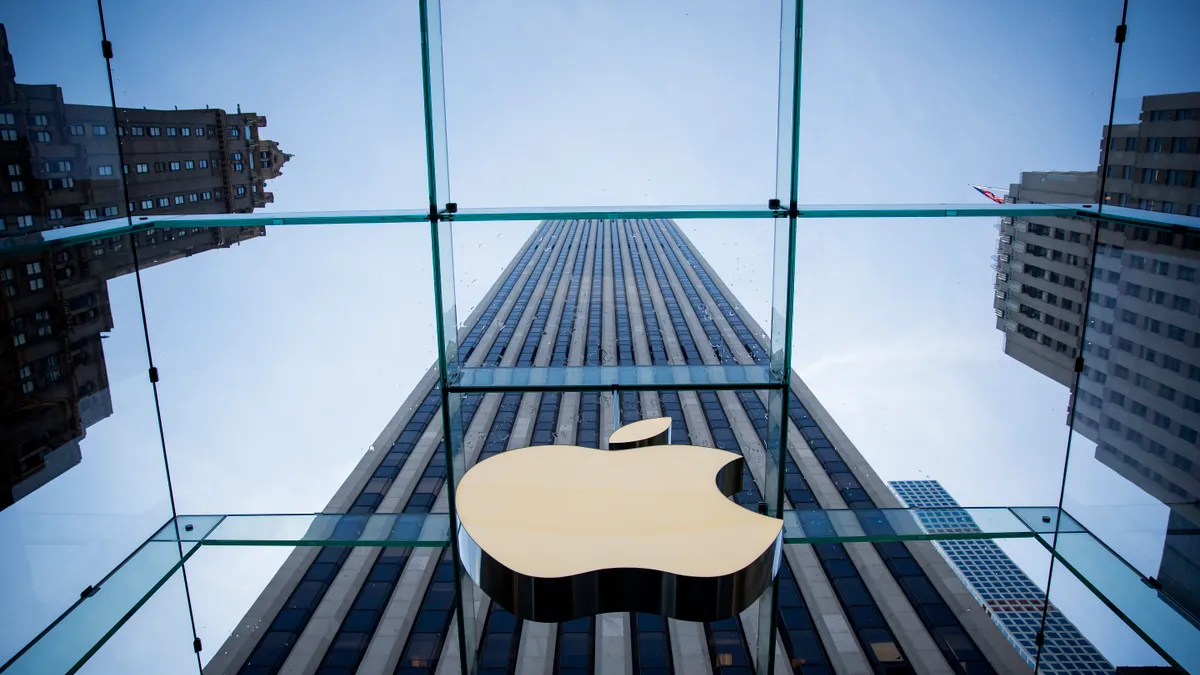Dive Brief:
- The combined capital expenditures of the “big four” tech firms could reach a record high of as much as $280 billion this year, up from about $224 billion in 2024, driven in large part by artificial intelligence investments, according to a recent UBS report.
- The good news for the sector is that its AI monetization is “primed to improve sharply” in 2025, although revenues are likely to again lag behind capex, UBS analysts said in the report, which was shared with CFO Dive. The big four refers to Amazon, Apple, Google parent Alphabet and Facebook owner Meta, a UBS spokesperson said. The companies aren’t specifically named in the report.
- “We anticipate the gap between AI capex and revenues will narrow in 2025,” the analysts wrote. “Companies adopting AI will use it to both increase their revenue and reduce their costs, which suggested measuring the economic value add from AI will grow in importance as a measure of monetization.”
Dive Insight:
Big tech companies have been locked in an AI investment race, with the trend showing no signs of slowing down any time soon.
Microsoft expects to spend roughly $80 billion during its current fiscal year on AI-enabled data centers to train large language models and deploy AI and cloud-based applications, Brad Smith, the company’s vice chair and president, said in a Jan 3 blog post. More than half of the investments will be in the U.S., he said.
In late October, Microsoft said it generated $65.6 billion in revenues during its fiscal 2025 first quarter ended Sept. 30, an increase of 16% year over year. The company’s AI investments were given much of the credit.
“AI-driven transformation is changing work, work artifacts and workflow across every role, function, and business process, helping customers drive new growth and operating leverage,” Microsoft CEO Satya Nadella told investors during an earnings call at the time.
Meanwhile, Alphabet CEO Sundar Pichai made similar comments in October as the company posted consolidated revenues of $88.3 billion for its fiscal 2024 third quarter ended Sept. 30, a 15% jump compared with the year-earlier period.
“Our commitment to innovation, as well as our long-term focus and investment in AI, are paying off with consumers and partners benefiting from our AI tools,” he said.
Still, Wall Street has been closely watching big tech’s growing AI expenditures, with nervous reactions at times.
Meta’s stock price dipped more than 4% on Oct. 31, a day after CFO Susan Li rattled investors with news the company was expecting “significant” capital expenditure growth in 2025 driven primarily by costs related to AI infrastructure demands.
Analysts at UBS predict that big tech firms will make more headway in monetizing their AI spending this year.
“AI adoption is picking up across industries and is set to broaden in 2025, and the arrival of more clearly useful AI agents should further support return on investment,” they said.












